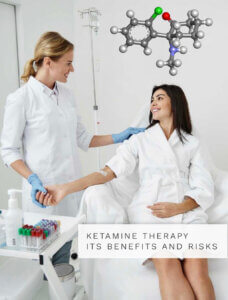How Much Caffeine is Too Much and 9 Benefits of Caffeine
Coffee and Tea are beloved beverages known for its ability to fine-tune your focus and boost your energy levels.
In fact, many people depend on their daily cup of joy right when they wake up to get their day started on the right foot.
In Accord with Andrew Huberman, is neuroscientist and professor at Stanford University School of Medicine, takes it a step further, waiting for 90 to 120 minutes (2 hours) for his first cup of coffee, even though he’s “thinking about and fantasizing about and craving caffeine” the moment he wakes up.
“The reason I delay caffeine is that one of the factors that induce a sense of sleepiness is the build-up of adenosine in our system,” he said. “The buildup of adenosine accumulates the longer we’re awake, so early morning your adenosine levels are likely to be very low.
People who regularly drink coffee may be less likely to develop chronic illnesses, such as diabetes, Parkinson’s disease reduced cognitive decline, coronary heart disease, stroke, and kidney disease.
According to the Food and Drug Administration, as much as 400 milligrams of caffeine a day – equal to four or five cups of coffee – is considered safe for healthy adults.
- Coffee. 1 cup or 8 ounces of brewed coffee contains about 95 mg of caffeine. The same amount of instant coffee contains about 60 mg of caffeine. Decaffeinated coffee contains about 4 mg of caffeine. Learn more about coffee.
- Espresso. 1 shot or 1.5 ounces contains about 65 mg of caffeine.
- Tea. 1 cup of black tea contains about 47 mg of caffeine. Green tea contains about 28 mg. Decaffeinated tea contains 2 mg, and herbal tea contains none. Learn more about tea.
- Soda. A 12-ounce can of regular or diet dark cola contains about 40 mg of caffeine. The same amount of Mountain Dew contains 55 mg of caffeine.
- Chocolate (cacao). 1 ounce of dark chocolate contains about 24 mg of caffeine, whereas milk chocolate contains one-quarter of that amount.
- Energy drinks. 1 cup or 8 ounces of an energy drink contains about 85 mg of caffeine. However, the standard energy drink serving is 16 ounces, which doubles the caffeine to 170 mg. Energy shots are much more concentrated than the drinks; a small 2-ounce shot contains about 200 mg of caffeine. Learn more about energy drinks.
- Supplements. Caffeine supplements contain about 200 mg per tablet or the amount in 2 cups of brewed coffee.
In moderate doses – up to two 8-ounce cups of coffee – caffeine can make people less tired and more alert. Some studies suggest it can reduce appetite and lower the risk of depression. But high doses – 12 cups or more – can make people feel anxious, raise blood pressure and lead to heart palpitations and trouble sleeping. For people who consume caffeine regularly, stopping consumption abruptly can lead to symptoms of withdrawal, such as headaches, fatigue and depressed mood.

What are the top health benefits of drinking coffee?
Your brew gives you benefits beyond an energy boost. Here are the top ways coffee can positively impact your health: You could live longer.
Recent studies found that coffee drinkers are less likely to die from some of the leading causes of death in women: coronary heart disease, stroke, diabetes and kidney disease.
1. Your body may process glucose (or sugar) better. That’s the theory behind studies that found that people who drink more coffee are less likely to get type 2 diabetes.
2. You’re less likely to develop heart failure.
3. Drinking one to two cups of coffee a day may help ward off heart failure when a weakened heart has difficulty pumping enough blood to the body.
4. You are less likely to develop Parkinson’s disease. Caffeine is not only linked to a lower chance of developing Parkinson’s disease, but it may also help those with the condition better control their movements.
5. Your liver will thank you. Both regular and decaf coffee seem to have a protective effect on your liver. Research shows that coffee drinkers are more likely to have liver enzyme levels within a healthy range than people who don’t drink coffee.
6. Your DNA will be stronger. Dark roast coffee decreases breakage in DNA strands, which occur naturally but can lead to cancer or tumors if not repaired by your cells.
7. Your odds of getting colon cancer will go way down. One in 23 women develops colon cancer. But researchers found that coffee drinkers — decaf or regular — were 26 percent less likely to develop colorectal cancer.
8. You may decrease your risk of getting Alzheimer’s disease. Almost two-thirds of Americans living with Alzheimer’s disease are women. But the caffeine in two cups of coffee may provide significant protection against developing the condition. In fact, researchers found that women aged 65 and older who drank two to three cups of coffee a day were less likely to develop dementia in general.
9. You’re not as likely to suffer a stroke. For women, drinking at least one cup of coffee a day is associated with lower stroke risk, which is the fourth leading cause of death in women.
References:
https://www.heart.org/en/news/2022/08/08/is-caffeine-a-friend-or-foe
https://www.hsph.harvard.edu/nutritionsource/caffeine/






